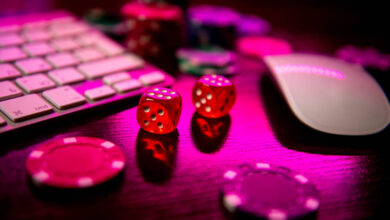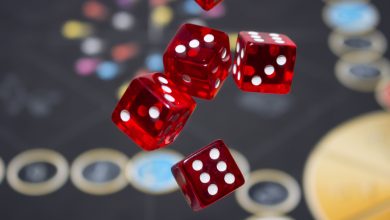Your Ultimate Poker Cheat Sheet: Tips and Tricks for Winning Big

Poker is one of the most popular and exciting wagering games out there, and with good reason. From the rules to how hands are ranked, nearly every aspect of poker is pretty simple and straightforward.
No wonder over 100 million people play poker across the globe, with more than 60 million poker players in the US alone.
Get this: there are more poker players than there are tennis, billiards and golf players. What’s more – online poker rooms are thought to generate an average of $2.8 billion in winnings annually.
Even though the gameplay is easy, poker is, for the most part, a game of strategy. That’s why most rookie players often feel as if they have dived into the deep end of the pool when they play with more seasoned players.
Even if you are a veteran player, learning how to win consistently when playing poker isn’t always so easy. You need to hone some bluffing strategies and learn the etiquette of the game.
No matter if you are playing for money at an online casino or for fun with your friends at home, you also need to know how to manage your bankroll (chips).
There’s a lot to learn when it comes to playing consistent winning poker. That’s why we rounded up this comprehensive poker cheat sheet.
Herein you will find all the dos and don’ts, as well as etiquette, tricks, and tips for winning at poker.
Let’s get one thing straight right off the bat, though: this cheat sheet will probably not make you an overnight poker guru.
To become the next Patrik Antonius or Sam Greenwood, you need to work your way up the ladder, learning tidbits of the game as you go.
However, you need to have some guidelines and tricks contained in this cheat sheet up your sleeve if you want to start playing poker on the right foot.
Poker Etiquette
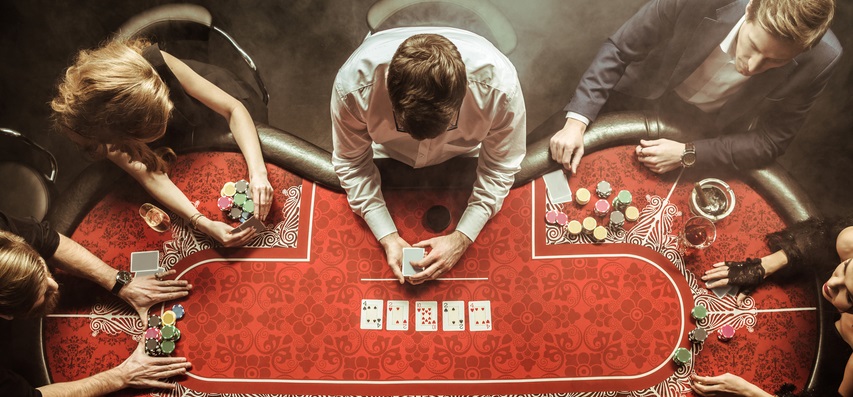
You need to observe every bit of poker etiquette, especially if you are playing at your home or your friend’s place.
Most of these rules of etiquette are run-of-the-mill poker dos & don’ts, and yet some call for plain common sense.
Nonetheless, if everyone at the table is on the same page as far as etiquette is concerned, the game will be more enjoyable, fun and equally rewarding.
Without further dilly-dallying, here are the top 10 dos and don’ts of poker etiquette you should heed to when playing a friendly game at your garage, man cave or someone else’s home:
(1) Be swift when playing
Slow players are a huge bummer when it comes to playing a friendly poker game.
Taking five or so minutes trying to out bluff your friends might seem good from your standpoint, but can make the game dull for others. Place your chips quickly and call without delay.
(2) Be friendly and respectful at all times
This goes without saying. Lack of courtesy can turn a friendly game of poker into something awful. Remember no one likes someone who gloats and whines too much.
As a general rule of thumb, be respectful, friendly and courteous to all other players. After all, any at-home poker game is a warm and friendly match between pals, and not all about winning or making money.
(3) Honesty is the best policy
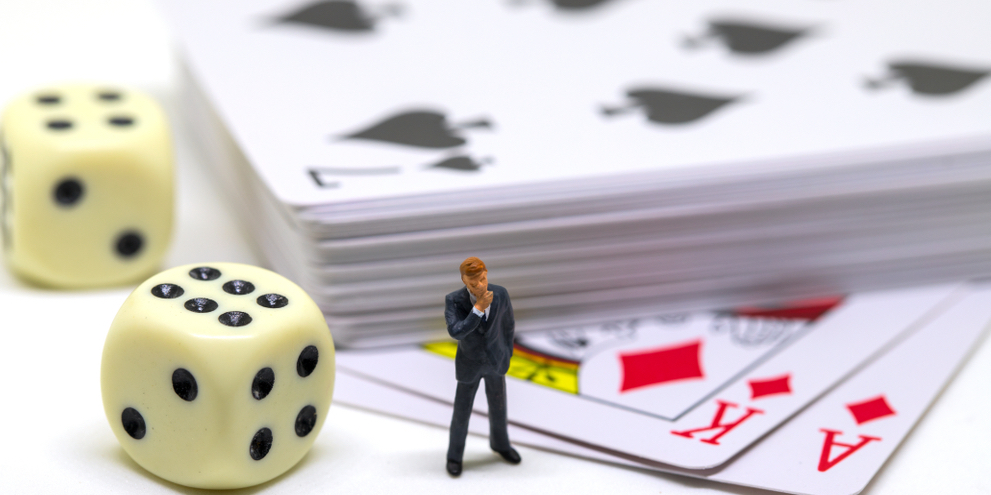
I know this might sound like a cliche to most players, but it could never be truer when playing poker at home.
That means you should avoid all forms of cheating, whether that’s switching cards, dropping cards, colluding with someone else … you catch my drift?
Also, don’t attempt to short-change the pool.
(4) Wait for your turn
Playing quickly is crucial, but wait until it’s your turn to fold, call or bet. Playing out of turn can impact on how other players place their bets.
And it’s downright disrespectful. So be patient, wait for your turn and always wager in the right sequence.
(5) Inform other players in advance if you’ll quit early
This is one of the worst things that can happen during a home poker game.
It’s not prudent in any way to leave without telling other players in advance. This will throw the game out of order.
That’s why it makes sense to tell others that you are planning to leave early beforehand. This way, they can find a replacement in advance or plan to end the game when it’s time for you to depart.
(6) Don’t be a sore loser
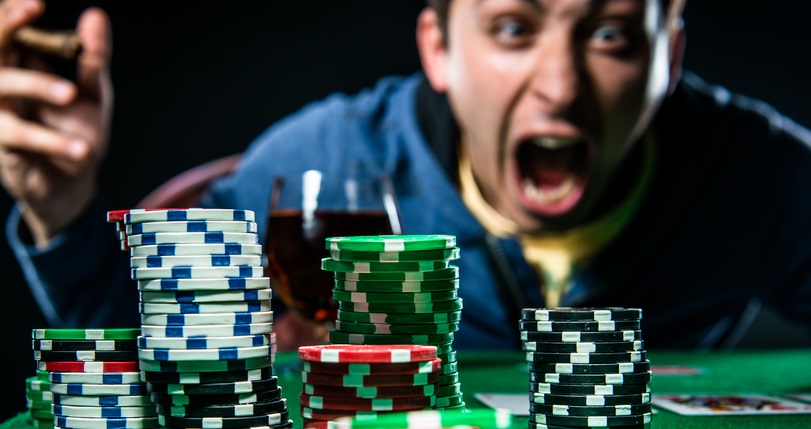
Winning and losing is part of playing poker. They all happen even to the best of us. Even still, don’t be a sore loser.
It may not be your best day at the poker table, but don’t tear cards, throw tantrums like a toddler, swear or show bad temper.
Most importantly, never abuse, fight or otherwise insult other poker gamblers at the table.
Instead of getting all enraged, ask for a moment to take a breather, as well as blow off steam and recollect yourself before returning to the game.
The last thing you want is to create some tension and make other players feel uneasy.
(7) Show some class when you win

Equally, be a good winner. You know you have taken down one of the best players at the table. Your bluffing technique is rock-solid, and has made several players fold. But don’t gloat too much.
Definitely, don’t be all up in the face of the other players when you win. Whatever the case and no matter how many times you have won, don’t deride or make fun of other players.
(8) Giving advice during someone else’s hand is a big no-no
This will not end well for you. If the advice turns out to be bad, the player won’t be happy with you.
On the other hand, if the advice is good, the player on the losing end will also be upset at you.
If it’s not your turn, just keep your mouth shut and let the active player figure out their play. The same goes for when it’s your turn.
More often than not, it’s not courteous to ask for advice when you’re in the middle of your hand.
(9) Don’t take a peek at someone else’s hand

Unless the player has given you express permission, don’t glance at their hand. In most cases, this is considered cheating and can ruin the atmosphere of the game. To be on the safe side, keep your cards close to your chest.
(10) Know your opponents
As a general advice, you don’t want to play against strong, well-established players, particularly when you are playing for money with strangers.
That’s why you don’t want to stake your hard-earned dollars at a table where you will be playing against someone called Puggy, Eskimo, Amarillo Slim or Thunder.
The odds are fairly high that you will walk away poorer than you came in.
Poker Bluffing Tips
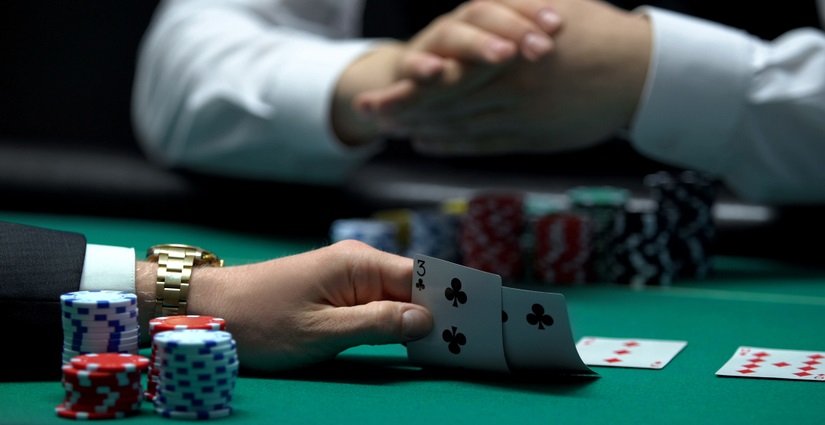
If you want to be good at poker, you must learn how to become a master of bluffing.
After all, this is a timeless, tried-and-true strategy that works on almost every type of poker.
However, the last thing you need is someone to call your weak bluffs.
The term bluffing refers to when you fake a move and disguise your real emotions by also faking your facial expression.
The idea behind this is to conceal the state of your hand, and lure your opponent to make a move that will be in your favor, whether that’s to fold, call or raise the bet.
Staying consistently on top of your poker bluffing game isn’t going to be so easy. So, consider the following tips to take your poker bluffing strategies to the next level:
(1) Choose your moments wisely
You cannot simply play each hand and expect your bluffing technique to work like a charm.
You need to pick the right moment when you know for certain that your chances of winning are reasonably high.
If you have a lousy hand, don’t be afraid to fold and keep your best moves for when you have a better hand.
Other players will discover your ploy, and won’t add money to the pot. That means that your payout will be much smaller even if you win.
You shouldn’t enter a hand with the sole purpose of bluffing. The bottom line is that you should bluff in only cases in which you’re very confident that you will succeed.
(2) Never bluff against more than 2 opponents
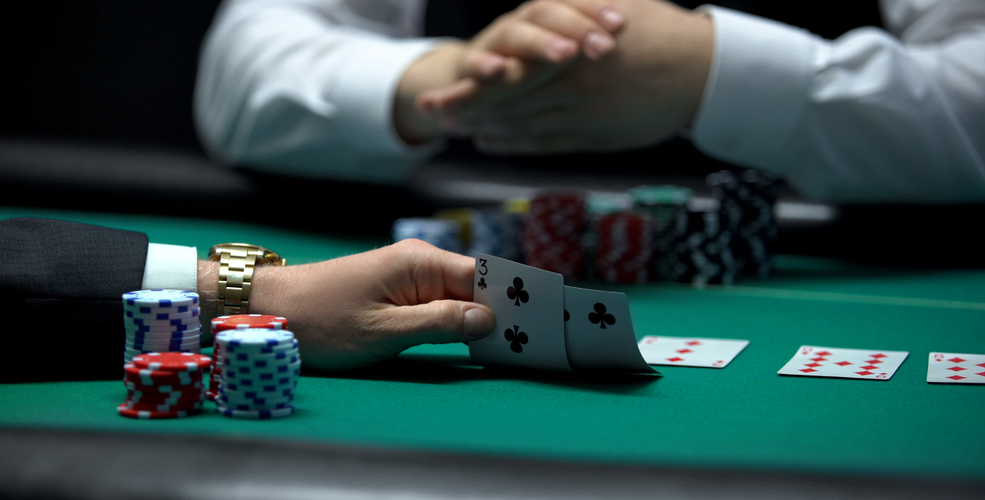
How many players do you’ve to bluff through to win? That’s an important question you need to ask yourself before you bluff.
In a lot of cases, even the best bluff can’t work against more than opponents. As such, bluff only when you are sure that you need to beat one or only a couple of players.
(3) Your position at the table matters
A bluff has a higher chance of working if you’re in the last playing position at the table. That’s because you will be the last to play, which means almost everyone has checked on your facial expression. This may be seen as an indication of weakness, but presents the perfect chance for you to wager, bluff, and win the whole pot.
(4) Bluff when most if not all the opponents checked on the last round
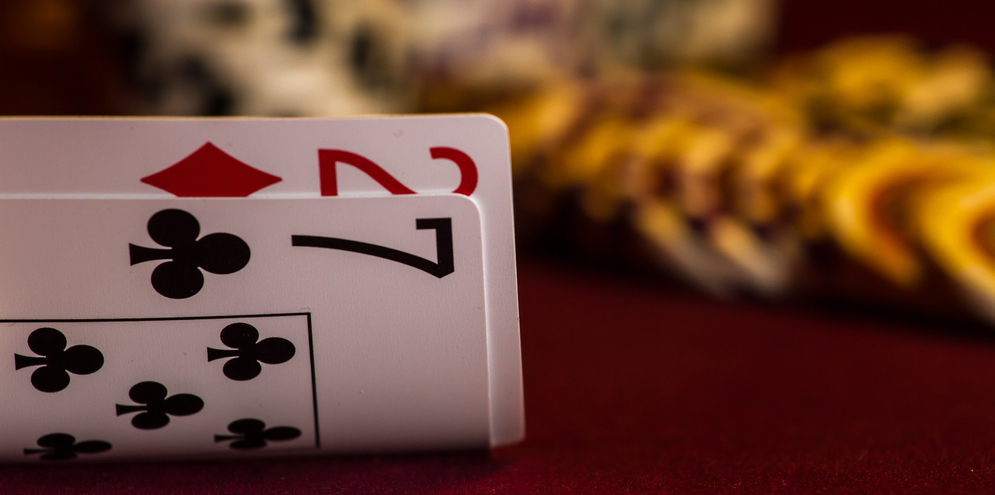
There are a handful of times when it’s ripe to bluff. The most advantageous one is when your opponents checked on the last wagering round.
This is especially true if it was particularly costly wagering round.
On the flip side, your odds are very low if you bluff after freshly exposed cards happens to have aided one or more of your opponents.
(5) Take newbies with a grain of salt
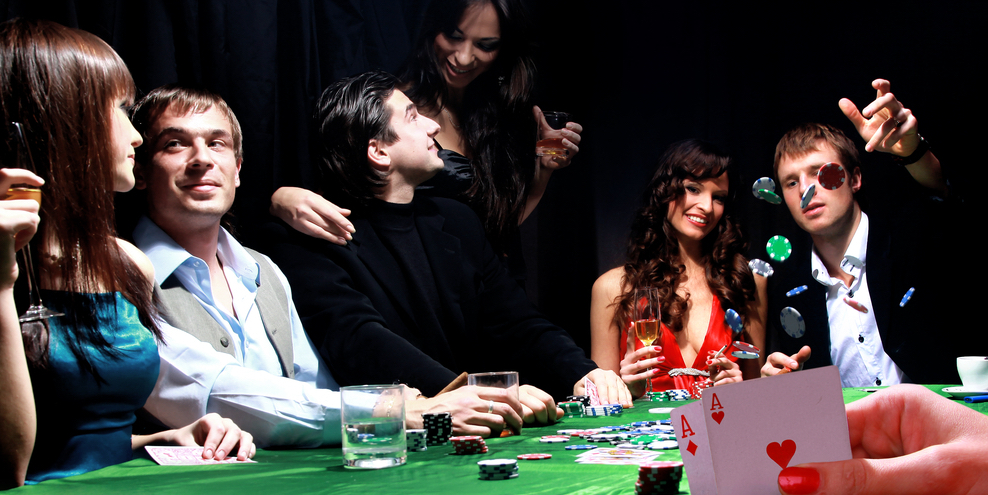
Here’s the truth about poker: newbies and bad poker players tend to call bets even if they have a poor hand.
That’s why should think twice before bluffing against such players. If they do call out your bluff, you will likely end up losing.
That’s right. Inexperienced poker players don’t know when to call, fold or call.
A seasoned player, on the other hand, will try to gauge the strength of your hand before folding or calling the bet.
So, don’t bluff against bad players or rookies no matter the strength of your hand.
(6) Keep your bluff specific to your hand
Imply your specific hand when bluffing. In theory, bluffs that have to do with particular hands like a straight or royal flush will more likely to be successful than bets that you just pick randomly.
(7) Take advantage of bluffing when the pot is smaller
This is a no-brainer because players fold or call depending on the pot probability. Pot odds means that you must always showcase the attitude and confidence of someone who has a winning hand every moment you bluff.
More importantly, you should bluff when the stakes are low. In other words, you need to bluff when the pot is smaller because most players are likely to fold.
Otherwise, most players won’t consider folding if the pot is lucrative, after all, they have more to gain if they stay the course. In light of that, you should not waste a good bluff on a big pot.
(8) Focus on weak opponents

So far we’ve established that poker gurus, bad players, and newbies are a no-go zone when it comes to bluffing.
But there’s a breed of players you need to zero in on: weak ones. You are better off bluffing against good opponents who have displayed weakness in past betting rounds.
If all signs seem to show that your opponent has a stronger hand, you may want to stay away from bluffing. This applies to all cases even if the opponent has shown weakness in past betting rounds.
(9) Semi-bluffs can do the trick too
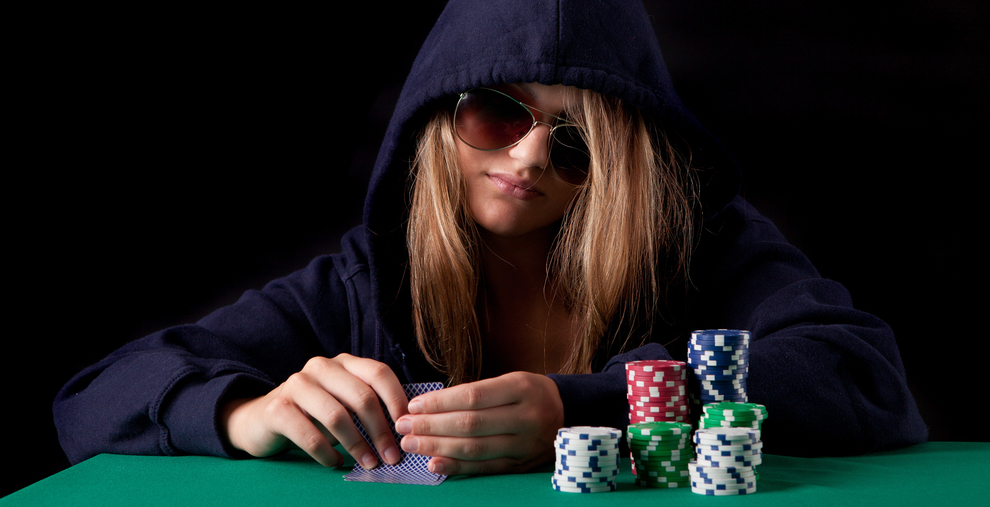
A semi-bluff is a big bet you put down to keep a showdown with another player at bay. Its job is to trick your opponent to give up.
But if the showdown does happen anyway, you still have a better chance of winning.
If you are a player who likes to bluff, you might want to use a semi-bluff if you suspect that your opponent has a similar hand to yours.
Note, however, that a semi-bluff usually does the trick only if you both the same hand. It might look and even feel like an aggressive move, but a semi-bluff is less risky than a full-blown bluff.
(10) Try bluffing when all the cards have been dealt
If you have to have nothing and all the cards are out, you may need to bluff. However, you should try this trick seldomly.
Of course, if your hand is good enough to challenge a draw, you can stick to your bet and attempt to pull through a showdown.
Know Thy Hand
Again, how poker hands are ranked is fairly easy to understand. They are ranked from the strongest to the weakest.
In a popular poker game like Texas Hold ém, it really doesn’t matter how the cards are being dealt. However, it pays to know what beats what in poker.
Like other card games, poker sticks to the same basic order of cards. That means the highest value cards are Aces (A), trailed by Kings (K), Queens (Q) and Jacks (J). After this comes the numbers, from 10 down to the lowest card of 2.
Here’s how hands are ranked in poker (from the best to the worst):
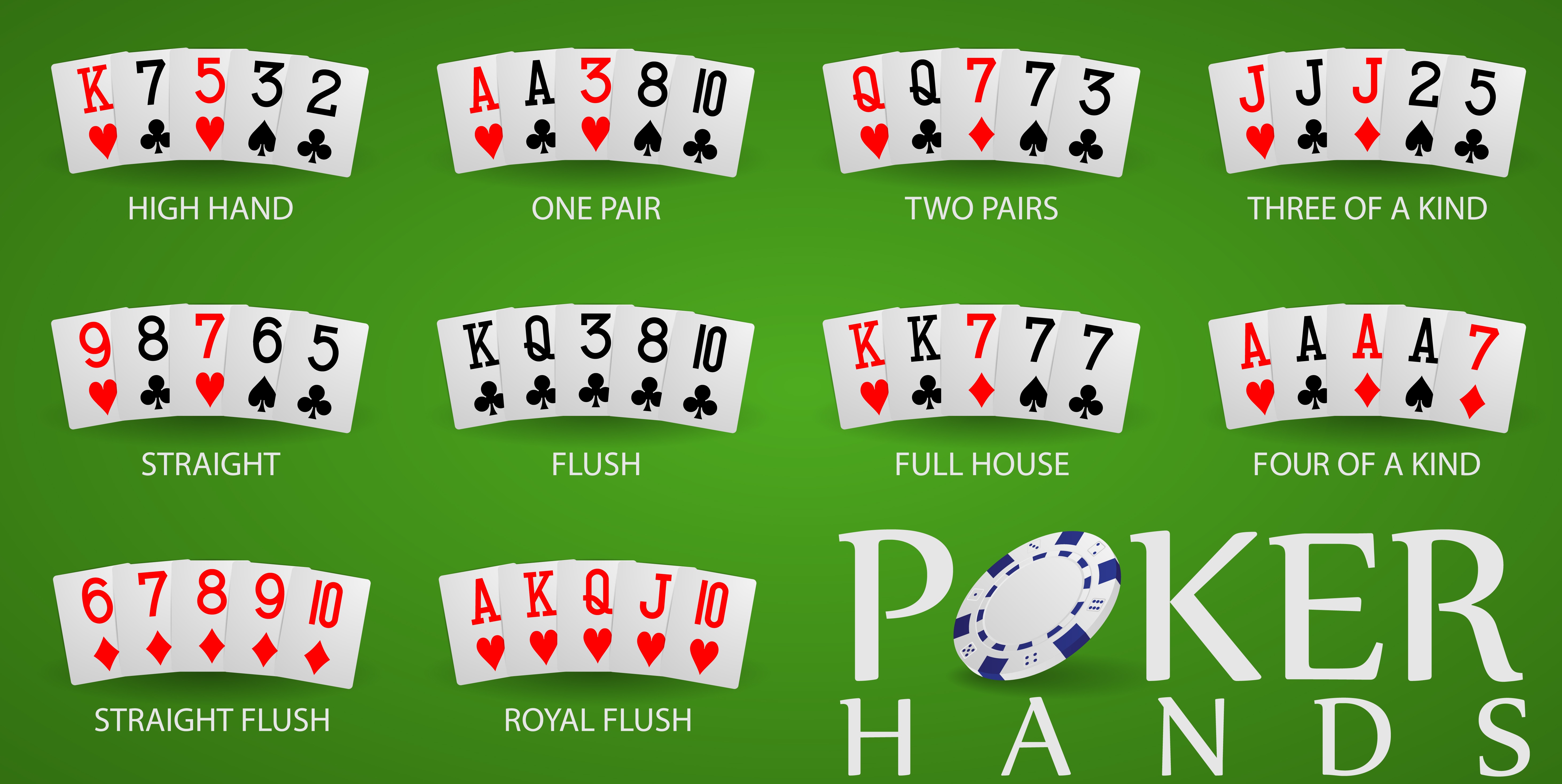
Royal Flush: This is the holy grail hand in poker, and nothing can trump it. Unfortunately, it’s very rare to get. A royal flush is a straight flush from 10 to Ace, all of the same suit. For example, a 10-J-Q-K-A, all of the spades is a royal flush.
Straight Flush: A royal flush is the only hand that can beat a straight flush. Like the former, a straight flush is also quite rare to come by. It is a hand in which you have five consecutive cards of the same suit. A hand with 5-6-7-8-9 all of the hearts is a straight flush, and so is 8-9-10-J-Q all of the clubs.
Four of a Kind: It’s all in the name. This is a hand with 4 cards of the same kind. It can be completed with the highest card in your hand or on the table. For example, four aces are said to be four of a kind.
Full House: This refers to a combo of 3 of a kind with another pair. For instance, 3 aces and 2 kings.
Flush: This is a combination of 5 cars all of the same suit. They may or may not be in order. If you and your opponent both have a flush, whoever has the highest card wins.
Straight: This means 5 cards that are in sequence. For instance, 2-3-4-5-6.
Three of a Kind: This refers to 3 cards of a similar kind. For instance, three kings. The hand can be completed with the 2 highest available cards.
Two Pair: Any set of 2 cards of a similar kind. A good example is a hand with two queens and two tens. It can be completed with any available high card.
Pair: This is simply 2 cards of a similar kind. For instance, two 4s.
High Card: If you have none of the above-mentioned hands and only one card, then we say you have a high card.
Tips for Managing your Money/Chips
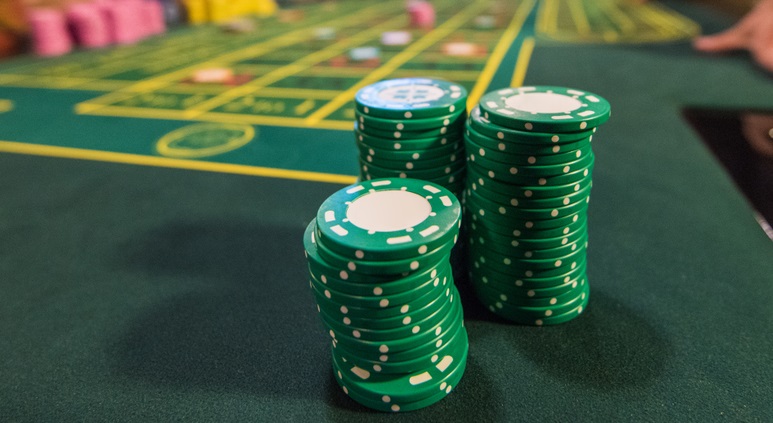
You can play poker from dawn to dusk – there’s no technical end. That’s why it pays to keep an eye on your chips (and bankroll).
Here are a few handy tips to keep in top of mind in order to stretch your poker money and increase your chances of having fun and winning:
Set win and loss limits – We all lose, and this happens more than you think in poker. As such, it’s crucial that you set a win limit and loss limit right out of the gate. In this way, you will know when to quit.
Stick to your limit – It’s not enough to set win-loss limits; you also have to stick to them. If you have reached your loss limit, it’s best to cut your losses. Don’t try to go after your money because you will end up making emotionally-charged and irrational calls.
Don’t quit too early – Some players think that it is wise to quit after an hour or a few hours when they are ahead. This isn’t always the best strategy. Instead, adopt a win-loss system that will guide your gameplan and help you decide when it’s just right to call it quits.
Quit a bad game immediately – This isn’t subject to debate. If you find yourself in a bad game, such one that’s filled with poker brainiacs, you need to quit pronto. It doesn’t matter if you won or lost money – just get out of it immediately.
Your condition of mind is important – If you are not your best, don’t play, it’s that simple. Are wrestling with a terrible headache, feeling stressed out or upset? If yes, don’t risk your money because your problems will catch up with you and ultimately can cost you dearly.
General Dos and Don’t of Playing Poker
- Do play against bad players, or what’s called fish in the world of poker. On the same note, don’t play at tables with several good players.
- Do make sure that you are adequately bankrolled. Ideally, you should be able to make 30 or more buy-ins for the table limit. Don’t attempt to play poker with a short bankroll.
- Do bet your strong hands often. To that end, only consider bluffing on so-called “scare cards” against weak players. However, don’t bluff against fish because most bad players will call your bet down anyway.
- Do play at a reputable poker room. Take your time to scout out the best online casinos and poker rooms. Make sure that the site is fully encrypted to protect your privacy and sensitive data online. Don’t forget to practice and brush up your tactics and strategies using free-play mode.




